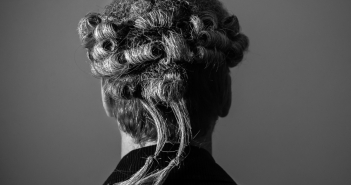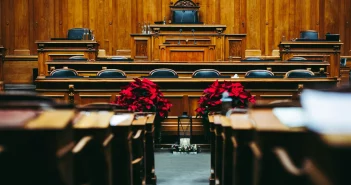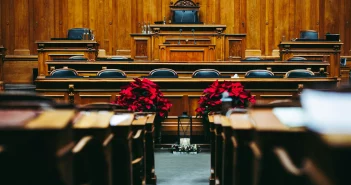Over the past few years, a broad consensus has emerged that in Ireland providing adequate protections for whistleblowing, and whistleblowers, is a lot more difficult to achieve in practice than in theory.
In many fields, extreme real life consequences for a brave decision to go public with revelations of wrongdoing have been apparent. The protections currently in place do not shield individuals from repercussions in one’s personal and family life, or career. We are talking about losing a job, harassment, unwanted public exposure, grave false allegations and framing, protracted legal challenges, financial difficulties to name but a few. All too often, such individuals are dismissed as ‘rats’. There follow death threats and even the potential for imprisonment. At any level such a decision is a life-changing event. In many cases it is traumatic.
There are many examples: Garda John Wilson and Maurice McCabe’s ordeals are well recounted in a RTE in a documentary. Back in 2017, banking whistleblower Jonathan Sugarman testified to the Oireachtas that: “Official Ireland has absolutely and completely destroyed the lives of every single whistleblower who has come forward, from whatever walk of life they’ve come.”
Many others have come forward to expose misconduct they witness emanating from so-called ‘official Ireland,’ a term that broadly signifies the nexus of the Irish ruling class’s power, across the public and private sector. It is fair to say, as sources have revealed, that there were, and possibly are, many more people who feel unable to go down the whistleblowing path.
Notwithstanding the Protected Disclosures Act 2014, the law should better regulate whistleblower disclosures and their protection, and encourage people to step forward when they witness wrongdoing.
Even now in 2021, after much debate and revelations, and with Irish whistleblowing legislation being under the process of amendment in compliance with the EU Directive 2019/1937, it is alleged that a culture of ostracizing whistleblowers persists in the civil service, Garda, as well financial and other corporate institutions.
If the legislation is there to protect individuals, why then, are some, or many unwilling to proceed? Why is it that after long pondering, and perhaps after seeking confidential advice from a lawyer or union, they find themselves unable to proceed with a disclosure?
And what can the whistleblower expect to endure after making the brave decision? More to the point, does the proposed new legislation offer adequate protect form the extensive tentacles of ‘official Ireland’?
I posed these questions to human rights barrister David Langwallner, who was asked by Sinn Féin to help draft a private member’s bill which they propose to introduce to Dáil Éireann by July 31st, 2021.
| Daneiel Idini (DI): David, can I ask you what’s happening these days with regard to whistleblowing in Ireland?
David Langwallner (DL): What happened was and I’ve got to be a bit circumspect about this. I was approached by a former client of mine who’s a whistleblower, and that client indicated that the Oireachtas was about to introduce, in compliance with EU law, a newly amended protected disclosure legislation to pass in 2021. There is an existing Protected Disclosures Act 2014. But certain deficiencies were pointed out to me by the Sinn Fein party. I had a meeting with them, they’ve asked me to draft a private member’s bill that they propose to introduce by July 31th 2021, first because of perceived and actual deficiencies in the existing whistleblowing bill. DI: How long have you been dealing with the issue of whistleblowing concerning Ireland? DL: I have represented whistleblowers [in the inquiry into a bank inquiry.]I continue to represent Garda whistleblowers and corporate whistleblowers. I lectured for one semester whistleblowing, at Middlesex University and I have gathered extensive materials. DI: You have also written two articles, one in the Village magazine and one in broadsheets on the pitfalls of whistleblowing. And tell me what exactly is wrong with Ireland’s handling of whistleblowing. DL: I think a number of things. The first thing is that the new proposed act is seeking to introduce private whistleblower regulation. The real problem in Ireland is state corruption. So you need regulation for whistleblowing and provisions that deal with whistleblowers in the Police; whistleblowers in the Department of Civil Service; whistleblowers within the structure of inquiries; whistleblowers within the structure of the public health system; and indeed the prison service and the present bill does not address that fully. DI: Is that because of the fact the whistleblower is forced to refer to the top of the organization that he is trying to blow the whistle on? DL: So that is that deficiency, I suppose. But the other deficiencies, documents, and literature suggest that there is no point in having a structure where a whistleblower is subject to the necessity to follow internal procedures before they (feel safe) to go externally. The reason for this is that when internal procedures are usually invoked, there’s the risk that bullies, submission, demonization, can ostracize the whistleblower. The first recipients of the disclosure are usually the very people who want cover-up in the first place. And in a culture like Ireland’s one, there are very few independent people who take this seriously. So a whistleblower has to do a job. He has to be able to circumvent the internal processes and procedures of the corporate or public organization that they’re in. And that means a whistleblower has to be allowed to go outside that organization, to the press, for example. But the difficulty that we face in this Irish media context though, is that there is very little investigative press, anymore, who are not controlled by the established parties. The same parties are concealing all the levels of misconduct and wrongdoing. DI: So can you tell me in a nutshell in a few minutes exactly what the current legislation covers and if it tackles this “Culture” of antagonism towards whistleblowing? DL: Well, the current legislation covers things like criminal wrongdoing, corruption, bad financial administration, miscarriages of justice. It’s extensive to that extent. But the problem is that it doesn’t matter how extensive the coverage is in terms of protection If the culture is not receptive to whistleblowing. So, the person I represented to the inquiry into whistleblowing and audit the second day of the case,(the first effective third case,) the police got wind of this and they threatened the breach of the Official Secrets Act. So to intimidate to not go ahead. So even if you’ve got a culture of bullying, harassment, and intimidation, you could also, at the same time have, like the Soviets, a fabulous constitution that protected every right under the sun but it was utterly meaningless in practical terms. You could have a whistle-blowing statute that protects everything, but not when organizations such as the Department of Justice, Police, corrupt politicians get involved. I think what we need to do is create a more receptive culture. It means creating an independent ombudsman, allowing for external reportage. DI: Can you give me an example of what is the path that he has to follow to effectively become a whistleblower and therefore denounce what he saw? DL: Well say, for example, a senior police officer who sees that the police are actively framing people for child sex abuse, for example. The process of complaint in that particular context is that the police officer in question would have to make an internal complaint within the police. And those at the top police force were part of corruption. DI: Are you saying that there should be more protections for someone who makes the disclosure directly to an external, independent first recipient. Someone or a body that is not in the organization involved by the whistleblower disclosures? DL: There can be no barrier, statutorily, to someone going to an external body or agency or the press, having to have exhausted internal procedures. As they have to go through the hoops of internal procedures, those procedures would try to demonize and diminish them and have a vested interest. So you have to go first internally, and then go to an ombudsman, before you go to the press or external body. I think in conjunction with the whistleblower allegation, we need to build in a procedure where the whistleblower is almost immediately protected, and that I mean that there must be a party to go to that can give them a income structure if there were suspended from work, so that they don’t have to interact with people who are blowing the whistle on the workplace. The lack of such support is inherent in our culture of compliance, which is so amazing. |
For the purpose of clarification, I had further conversations with David on the last points touched on in the above interview as to the psychological impact that a whistleblower faces. If not properly addressed with, for example, access to therapeutic psychological support, as well as other forms of protection, even more stigmatization may be the result.
I also discussed with him, as well as with other sources, that currently wish to remain anonymous, the procedures for disclosure that are in place for whistleblowers to use. It’s pretty obvious that internal procedures of disclosures, in some cases, can be painful as well as inefficient for all the reasons discussed above. But are alternatives offered, for example the Garda Ombudsman with regard to complaints about Gardai, allowing for the full protection available under the Act? And is the compensation scheme adequate, or should this include aggravated and exemplary damages?
Should the protections, and possible compensation, also include redress to family members of whistleblowers, who might have suffered the consequence of this “culture”.
We will continue to ask these and other questions, but in the meantime, there remains one important question for me to ask which is: has Ireland got any better for whistleblowing, after years of revelations, media coverage, and resignations; or are things pretty much as they always were, if not worse?




